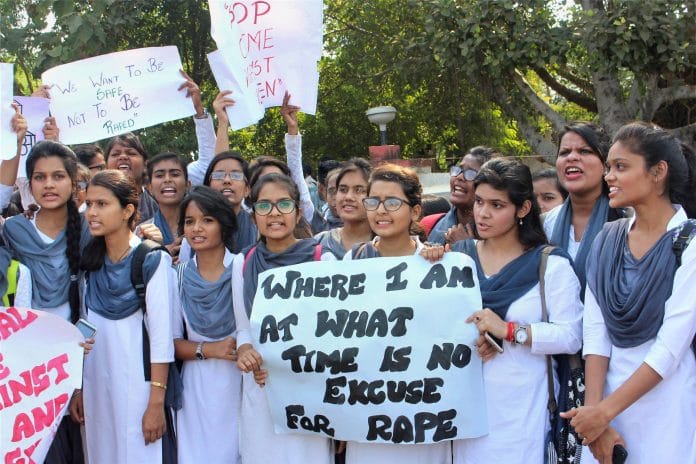Five years since the gang-rape of a 23-year old in the capital left the entire nation shaken, a new Human Rights Watch report has found that survivors of sexual violence are still grappling with the same debilitating culture of humiliation, hostility and harassment across the country’s police stations and hospitals.
Read more on the HRW report here.
What is holding India back from implementing the sexual assault laws passed after Jyoti Singh’s fatal gang-rape five years ago?
Maharashtra was one of the first states to roll out a landmark scheme for helping rape survivors and victims of child abuse following the outrage over the gang-rape of a photojournalist in a Mumbai mill in 2013. However, even the sensitively-drafted Manodhairya Yojana, which literally means ‘self-confidence scheme’ has failed in execution on the ground.
The scheme provides financial aid up to Rs 10 lakh (from Rs 3 lakh earlier) — in line with a recent change in the “rarest of rare cases” — in instalments irrespective of the outcome of the criminal trial. The first 50 per cent is to be disbursed on the registration of an FIR so that victims have access to aid when they need it the most, and the scheme is supposed to cover not just medical treatment, but legal assistance, counselling and rehabilitation as well.
Here are other perspectives on sexual assault laws:
Neetika Vishwanath: Lawyer, Centre on the Death Penalty at National Law University, Delhi
Deepika Narayan Bhardwaj: Director of documentary film “Martyrs of Marriage” on misuse of anti dowry law
Sabah K: Journalist at ThePrint, and survivor of sexual assault
Madhu Mehra: Feminist lawyer and executive director at a legal resource group on women’s equality and social justice
However, the basic essence of the scheme, which is immediate disbursement of aid, is lost in red tape and arbitrary decisions of the relief and rehabilitation boards set up to scrutinise cases and grant compensation.
The committee’s role is to ensure that the compensation amount reaches the victim as long as an FIR has been filed and the charges listed in it are covered under the scheme. However, activists complain that the committee oversteps, rejecting compensation to many without necessarily ascribing reasons. Even among the cases cleared for compensation, between October 2013 when the scheme came into force and January 2017, more than 1,300 survivors who were sanctioned compensation were yet to receive it, according to official data.
The state government’s recent modification to the scheme has only weakened it further, prompting the Bombay High Court to set up a panel to look into it. While it has raised the maximum compensation to Rs 10 lakh, new rules mandate that 75 per cent of the aid be paid in the form of fixed deposits of a 10-year tenure.
Manasi Phadke is an Associate editor at ThePrint






